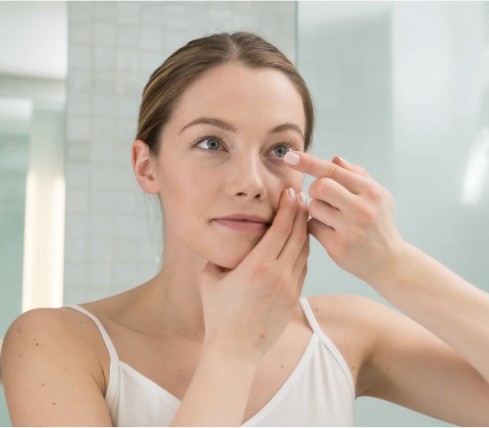No matter what type of inherited retinal disease (IRD) you have or your level of vision, it is important to prioritise looking after your eyes and protect whatever sight you do have. There are a number of factors that can exacerbate or contribute to certain conditions, so it is important to be aware of them.
Take regular screen breaks
If using a computer, electronic device or watching television, take frequent breaks from the screen, preferably at least once an hour. Resting your eyes can avoid headaches, eyestrain, soreness and double vision.
Wear sunglasses
Ultraviolet (UV) light from the sun’s rays can cause damage to your eyes. To reduce risks always wear sunglasses when in the sun.
All sunglasses sold in Australia must be tested and labeled according to the Australian/New Zealand standard (AS/NZS 1067:2003 Sunglasses and Fashion Spectacles). Look for a lens category of at least 2 or preferably 3 to reduce glare and provide good UV protection.
Sunglasses will also help relieve discomfort from glare, which can be a common symptom with some types of IRDs. Close-fitting wraparound glasses will block more light and offer better protection. Be aware that UV rays can still cause damage when it is cloudy and overcast.
Wear safety glasses
Cleaning, DIY or gardening can be hazardous to your eyes as chemicals, garden debris, or nails and splinters can all cause injury. Consider wearing safety glasses when completing these tasks to protect your eyes.

Don’t smoke
We all know that smoking is bad for our health, but did you know that smoking can damage your eyes? Your eye is a complex organ that needs oxygen to survive; smoking reduces the amount of oxygen in your bloodstream, so less oxygen reaches the eye. This causes oxidative stress, damaging the retina and the retinal pigment epithelium (RPE) cells.
Smoking is a strong risk factor for developing age-related macular degeneration and diabetic retinopathy. Stopping smoking can stop or reverse damage to the eyes, depending on the severity of the condition. Passive or second-hand smoke also causes damage to the eye and should be avoided.

Eat healthy foods
Some foods can help protect against certain eye conditions due to the specific nutrients they contain. We are still learning about how diet affects IRDs. By having a healthy and varied diet, including eating significant quantities of fruit and vegetables, you can help to keep your eyes as healthy as possible.
There are some IRDs which have specific dietary requirements, such as Refsum disease (where you need to avoid red meat and dairy) and Stargardt disease (where you should not take vitamin A supplements). Your eye care professional will be able to provide you with specific dietary advice for your condition.
Clean your contact lenses
Only use commercially-prepared cleaning solutions for contact lens care and never use tap or distilled water, or saliva. If you don’t stick to a strict cleaning routine, your eyes can become infected and you risk corneal disease or even the loss of an eye. You should never borrow or use anybody else’s contacts, and never sleep in your contact lenses unless advised you can do so by the optometrist.
Take care with cosmetics
Be careful when using eye make-up remover or any other cream around your eyes. Close your eyes or turn away when spraying cosmetics, like perfume or hairspray. Eye makeup such as eyeliner and mascara should be replaced according to the schedule on the bottle – usually at least once a year.


Have regular eye tests
Looking after your eyes should include eye tests which are recommended at least once every two years. It is important to maximise any useful vision you have by wearing the best possible glasses prescription. Your optometrist can help you with this.
A regular eye test can help to identify any early indications of eye conditions. An eye test may also identify other problems, such as diabetes and high blood pressure, for which the optometrist can refer you back to a general practitioner (GP). Note that if you have an IRD, your eye care provider may ask you to come back for more regular reviews.
Know your family eye history
Due to the hereditary nature of IRDs, find out about your family history.
Know First Aid
Never guess about the severity of an eye injury.
Seek medical attention as soon as possible following an injury, particularly if you have pain in the eye, blurred or loss of vision.
